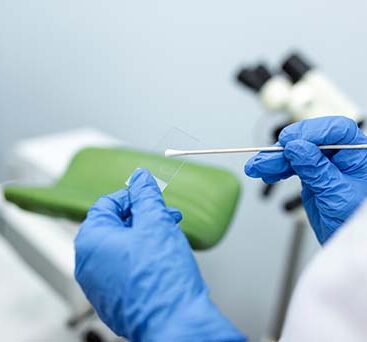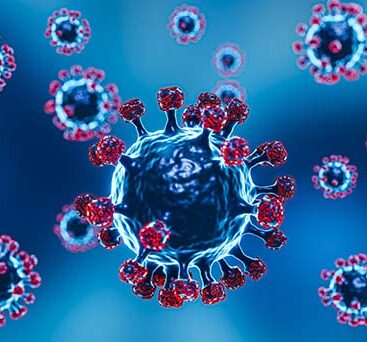
Prof. Dr. Onur Topçu
Gynecology and Obstetrics Specialist
The information provided below about medical diseases is not for advertising purposes. These are articles intended to inform and promote patients. If you think you have one of the diseases listed below, we recommend that you be examined by healthcare professionals who specialize in this field for medical advice and treatment.
The smear test, which is an important test in screening for cervical cancer and precancerous lesions, is also known as the pap smear test. Pap smear test is a procedure that does not cause bleeding, trauma or pain, and involves passing an extremely thin rod to the cervix and taking a swab. Additionally, HPV DNA testing should be performed to detect the presence of HPV. HPV DNA test and smear test are performed in our clinic for an affordable fee. Please call for an appointment.
What is Pap Smear Test?
Most human cancers do not have a screening test. There is a screening test for cervical cancer. Pap smear test is used as a screening test to detect cervical cancer and precancerous lesions. The purpose of this test is to detect lesions in the cervix before they turn into cervical cancer.
How is a Smear Test Done?
Pap smear test can be easily taken during a gynecological examination. A smear test can be taken at any time during the non-menstrual period. However, it is recommended not to have intercourse 48 hours before, not to use vaginal oss-like drugs, or vaginal lubricants.
First, a speculum, or examination instrument, is inserted into the vagina to visualize the cervix and take a swab. After the cervix is clearly visible, cell samples are collected with a smear stick (a tool with a thin brush) and spread on the glass or the sample brush is immersed in a liquid. Then, the smear brush inside the tube is examined under a microscope to see if there is any abnormal development.
When to Do the Smear Test?
The smear test, which is prescribed to be performed 3 years after the first sexual intercourse or at the age of 21, can be postponed in some cases. However, while it is routinely recommended for women under the age of 30 to have a smear test once a year, for those over the age of 30, if 3 consecutive negative smear results are negative, it is recommended to take a smear test once every 3 years.
The frequency of smear tests should be higher for those who are HIV positive, those with a weakened immune system, those who have undergone organ transplantation, those receiving estrogen, and those receiving chemotherapy and cortisone therapy.
Situations where there is no need to repeat the smear test are as follows:
- Those who had total hysterectomy for benign reasons
- If women over 70 years of age have had 3 negative smear results
- in the last 10 years
- Those who have a cervical lesion but have undergone a total
- hysterectomy for 3 consecutive negative smear results.
How to Evaluate Smear Test Results?
The Bethesta system is used when reporting Pap smear test results. The smear test report prepared by the specialist examining the pathology is examined by the gynecologist. While the absence of any abnormal, cancerous or precancerous cells in the Pap smear test is called negative, cases showing abnormal cervical cells are called positive. When an abnormal result is obtained, infection treatment, close follow-up, or biopsy with colposcopy may be recommended.
Should a Person Who Has Been HPV Vaccinated Have a Smear Test?
Human papilloma virus is described as a type of virus that can cause infection. HPV, one of the most common sexually transmitted diseases, infects the genital area and spreads easily by contact. Visible symptoms may sometimes occur after a few months, sometimes after a few years. Sometimes it can remain in the body for years without giving any symptoms.
HPV virus, which is the most contagious in the presence of active genital lesions, can also cause genital warts in men. However, the HPV virus poses a greater risk in women. For example, HPV virus can often trigger cervical cancer. Because HPV is also detected in 95% of women diagnosed with cervical cancer. Cellular changes caused by HPV can also be detected in a routine pap smear test. In this direction, DNA examinations for HPV are performed and the presence and type of HPV are determined.
How Are Patients With Abnormal Pap Tests Treated?
Patients whose smear test results are abnormal are evaluated and treatment is planned according to the results. Colposcopy can generally be applied to patients with abnormal smear test results. If cancer is detected in the patient during the examinations performed after abnormal smear results (colposcopy, biopsy, LEEP, conization, etc.), the type and stage of the cancer are determined and the necessary treatments are planned.
You can contact our clinic for detailed information.
Stay healthy..
Prof. Dr. H. Onur Topçu
Gynecology & Obstetrics-In Vitro Fertilization and Advanced Gynecological Endoscopy Specialist
PATIENT COMMENTS
Onur teacher was very supportive and encouraging at every stage of the process, from the very beginning to after the surgery. He informed us in the best and most accurate way by explaining all the details of the process completely and clearly. I would like to thank my teacher Onur very much and definitely recommend him to those who are looking for a doctor in this field.
Arz*** A***




